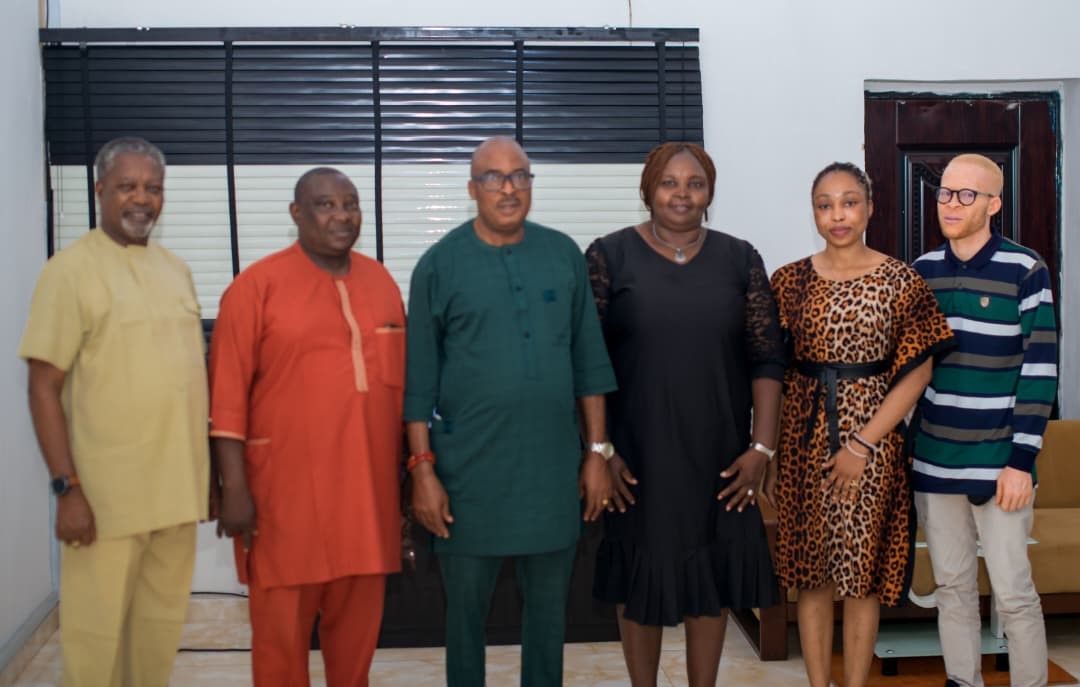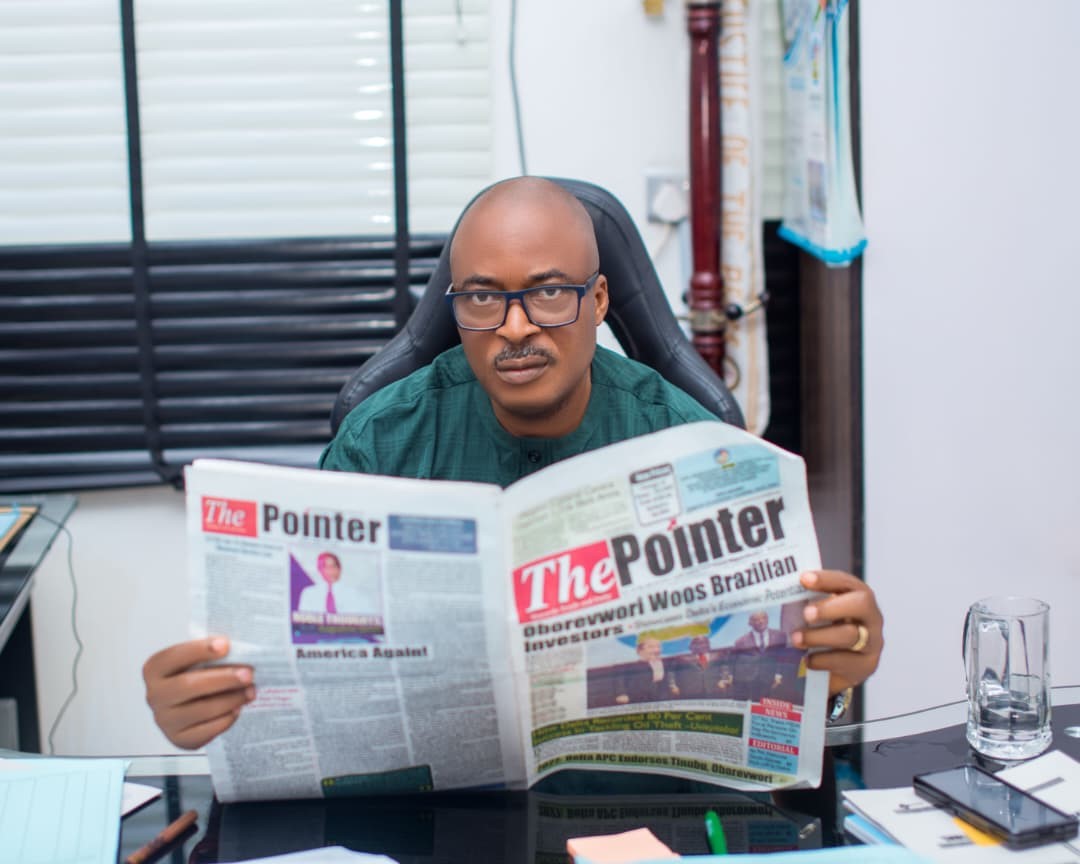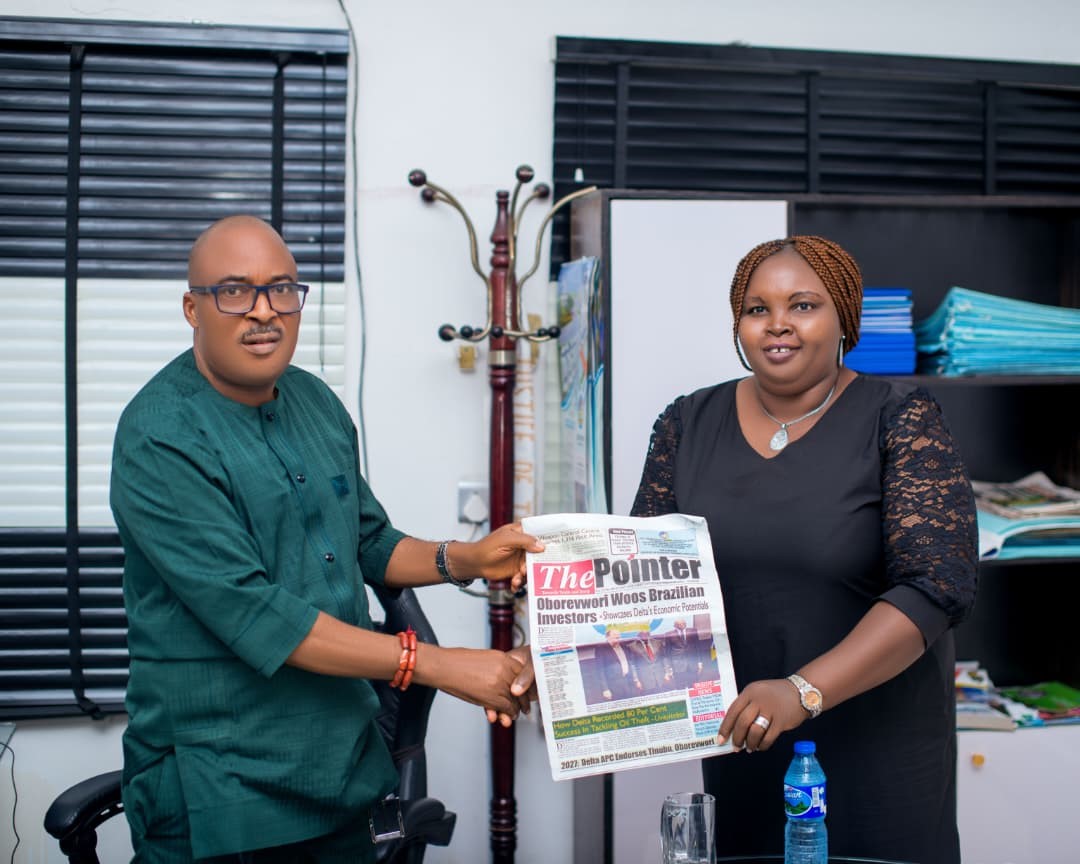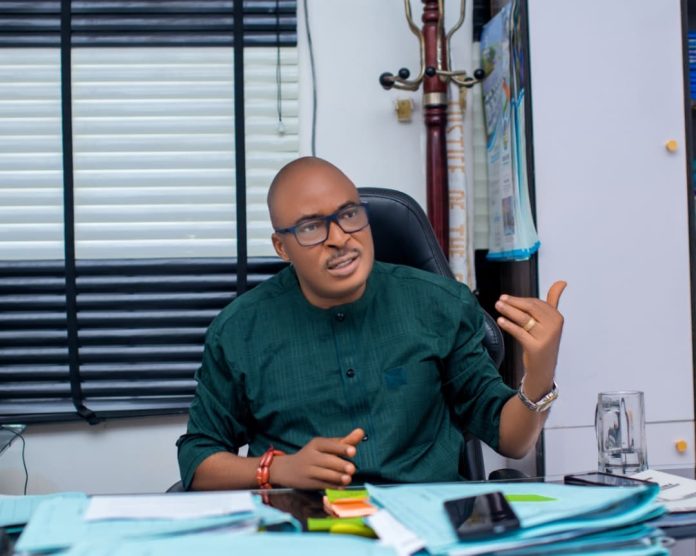In this week’s platform, we present to you, the Special Adviser to the Delta State Governor on Peace Building and Conflict Resolution, Chief Edwin Uzor, as he speaks on the efforts made by his office to manage conflicts in the State, the commitment of Governor Sheriff Oborevwori in keeping the State safe and peaceful, the challenges, successes, and many more. Excerpts.

Shall we meet you, sir?
I’m Sir Chief Edwin Uzor, Special Adviser to the Governor of Delta State on Peace Building and Conflict Resolution.
Delta is regarded as one of the most peaceful, if not the most peaceful state in the country. How did we achieve this feat?
The secret behind the peaceful state of Delta State lies in the activities of the government. You know, Delta at a time had a lot of agitations and disputes over who got what, which got the youth agitated. However, Governor Sherriff Oborevwori, upon assumption of office, recognised these issues and began to address them, as conflict and the heat in various states are often a result of inadequate infrastructure.
When people do not have food to eat, and they see that companies are operating in their area, they are bound to agitate, and that brings conflict. Now, this governor, from day one, took care of those things, and we in the Peace Building Section, being very familiar with the terrain of Delta, were able to give the right result. That has been the hallmark of our operations.
In Delta, there is a structure that has been laid down, procedures for addressing conflicts, and that is what we follow.
Now, issues come when they are referred to us, and at times, petitions come directly to us. First of all, we invite the complainant. The reason is that, if you do not hear from the complainant, you may proceed with the case, and at the middle stage discover that the person is no longer interested, or that he is not even the person who complained. So, first of all, we hear from the complainant. After that, we invite the people he is accusing. We take them separately, not together. Then we bring all the parties together.
Having heard from all of them, we conduct fact-finding, particularly in cases involving land, ponds, or community unrest. We go out to ascertain whether what has been presented to us in the office is the reality on ground. If you don’t do that, you make a lot of mistakes.
Fact-finding helps us to understand the exact position of what is happening.
Thereafter, we bring all the parties together. The complainant will ask the defendant questions, the defendant will ask the complainant questions, while we listen carefully. From the way they present their positions, you, as a mediator or conciliator, will now know where the truth lies. You don’t need a third party to tell you, listen to them.
And one strong remedy, one strong weapon is listening. You must listen very carefully to what they say.
After listening, you can now raise questions. Members of the team will also ask questions. They respond, and from there, if you are an expert, you begin to draw your conclusion, because it is now open. The two parties are before you, the allegations are before you, and you can discern whether they are true or false. That’s the way we operate.

Some time ago, your office intervened in the land issue involving Ugbekoko community in Sapele. Has it been resolved?
We did not intervene in the land issue. Like I told them, land issues should be dealt with by people who are experts on land.
There was also the issue of an oil company operating in the area, and how they should manage the people. That was where we intervened.
We gave them our professional advice, and I think there is peace there now.
The role of your office include intervention in chieftaincy matters, community restiveness, and land disputes. Among these, which is your highest area of intervention?
For now, land issues are more disturbing. There are chieftaincy matters, youth restiveness, Community Development Committee ‘wahala’, President-General issues, and kingship matters. In fact, all the problems are there.
But for now, land is the most disturbing. It is so because more developers have come into Delta, particularly in Delta North. They are everywhere, and people now lay claim to properties that do not belong to them. Because of this, development challenges have increased.
But by God’s grace, with the assistance of the governor who is also an expert on conflict management, we are managing it, and doing our best.
What is your major challenge in handling land matters?
At the root of several of these issues is the greedy nature of human beings. People knowingly lay claim to land that does not belong to them, just because they want to make money. That is the greatest challenge we have.
Since the Gov Oborevwori’s administration came on board, how many cases have you handled, and how many have you resolved successfully?
I have been here since 2016, and we have managed a lot of crises. But taking it from May 29, 2023, we have handled over 400 cases. By God’s grace, we have been managing them.
Crisis resolution is a continuous process. Sensitisation and workshops are continuous. You don’t say because you’ve resolved one issue, you now go to sleep. No. Once you relax, it will come up again. So it is continuous.
With the help of the governor, we are doing very well. He directs, advises, and guides us, and with our own expertise, we are also doing our best.
What are the challenges you face in the course of performing your duty?
Some of the challenges include difficulty in accessing some areas, especially riverine areas. In some communities, you cannot access them by motor vehicle. In the course of doing fact finding, you need to go to these places to differentiate the truth from the lies.
For instance, in one case in Ndokwa East, between Oboma and Obocha, where many lives were involved, in order to access the area in dispute, we had to trek for one hour 45 minutes. We were determined to know the truth, and by God’s grace, we were able to. The truth helped us to resolve the matter, because we were able to speak to the people with facts.
So, there are many challenges, but the governor is doing his best to address them.
Under the MORE Agenda, the “E” component, Enhanced Peace and Security is dear to the Governor. And fortunately, that’s the area you oversee. Is there any conflict case you have not been able to handle?
On the MORE Agenda: “M” stands for Meaningful Development, “O” stands for Opportunities for All, “R” stands for Realistic Reforms, and “E” stand for Enhanced Peace and Security.
Now, let me tell you, you must face difficulties if you are sincere in what you are doing, because the people you are talking to are human beings, and not all of them will accept what you tell them.
There was one case we handled, it had to do with land. We did our findings and proffered a solution. We advised both groups on how the land should be shared. One group banged the table and said: “It can never be!” But after one month, they returned here to say they had accepted the resolution.
Why? Because they had slept over our resolution, digested it, and realised it was the truth the best way to resolve the matter.
There are also some cases, especially in the Ezi axis, where the people have refused to attend meetings. In such cases, you cannot kill yourself. You’ve invited them, but they refuse to come, insisting that they are right.
But you cannot stay in your house and insist you are right. You must come for mediation. You must come for Alternative Dispute Resolution, where the issue will be raised and laid on the table.
Once both parties come before us, we resolve the problem because we are experts in conflict resolution, and God is also helping us.
To what extent have the traditional rulers cooperated with your office in conflict resolution?
Yes, the traditional rulers are doing their best. I can confidently tell you that many of them are helping us a lot. Some are not managing crises in their domains well, and some are even part of the problem. But the majority of them are very helpful.
Most of them understand what dispute is, and they also understand the mechanisms we have put in place to get to the true position of matters. So, we are working with them.
In May 2025, the Peoples Democratic Party (PDP) in Delta State collapsed into the All Progressives Congress (APC). What’s your take on this?
One point I want you to understand is, is the food cooked in your mother’s kitchen, or your wife’s kitchen, and served in the parlour not the same food? So, just use your tongue to count your teeth. There is need for a relationship with the Federal Government.
We have to connect to the Federal Government.
You know that Delta is among the highest, if not the highest, revenue-generating state in the country. So, we need to tap from that. Forget our politics; we must tap into that. All the wealth is coming from our place, and somebody wants us to remain behind?
That is not healthy.
It is alleged that, some oil companies deliberately create conflicts, using divide-and-rule tactics. How has your office been able to handle such?
Yes, that is a constant engagement. Even now, we have two petitions against oil companies reneging on the General Memorandum of Understanding (GMOU) they had signed.
Recently, we handled the case of Sterling Global and a community in Kwale. You may recall when they blocked the road. We resolved that matter and eased the tension. But the truth is, some investors always look for the cheapest way out. They enter into agreements with communities, then later renege.
Government is doing its best to ensure they implement these GMOUs. Because it is only when you implement them that you’ll be free from grassroots crisis.
Otherwise, the people will agitate, while those outside may blame the communities, not knowing that the oil companies have failed to honour agreements.
We are doing our best to make sure that host communities and oil companies stick to their agreements, so that there can be harmony.
There’s also what I call self-sabotage by representatives of communities. Some representatives don’t report the truth to their people. For instance, if the company agrees to give 300 bags of rice for Christmas, a representative may go back and say it’s only 50 bags. If the truth later comes out, crisis will erupt. So my advice is that, communities must be sincere.



